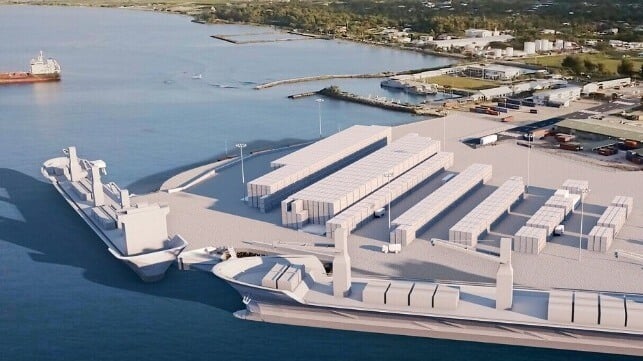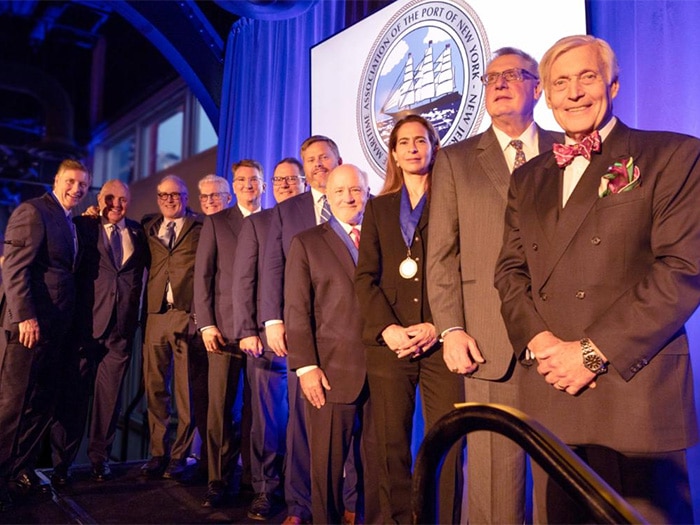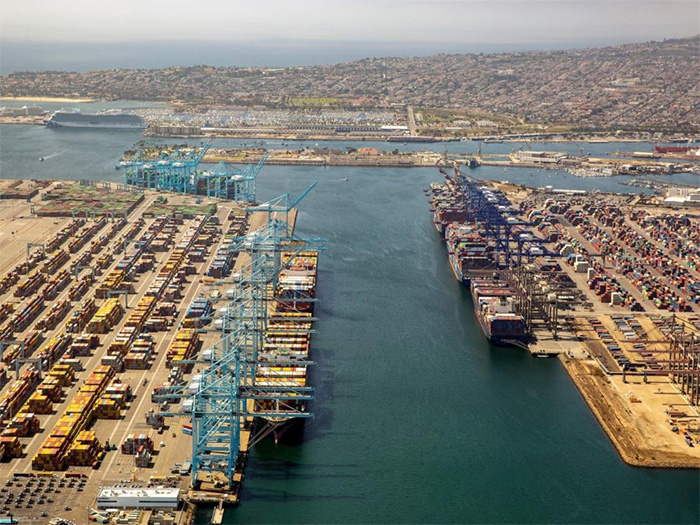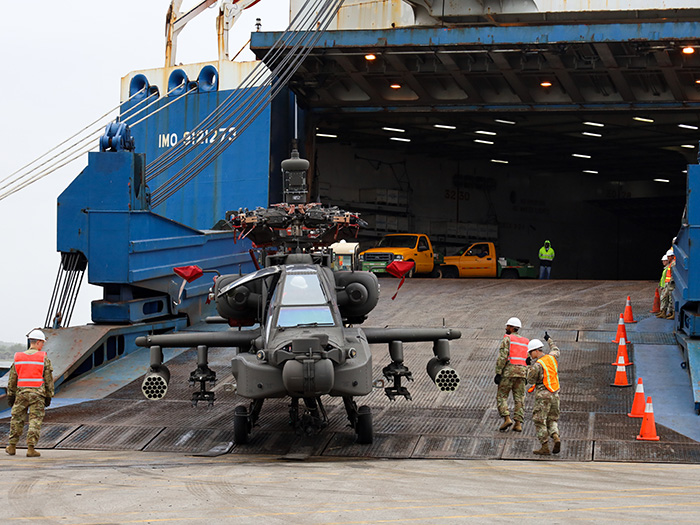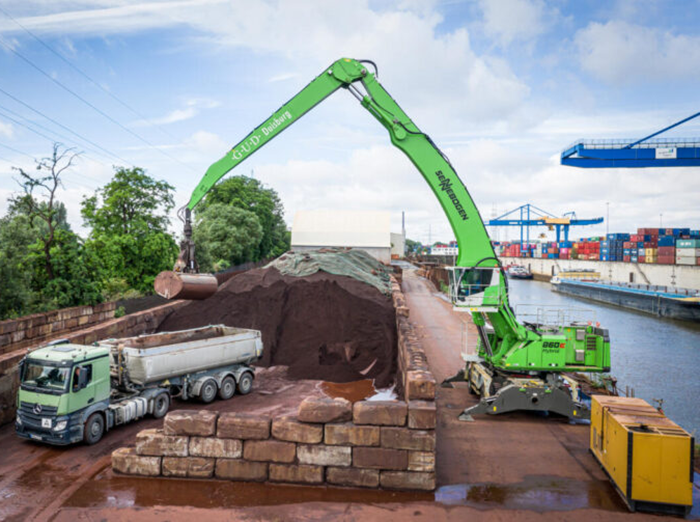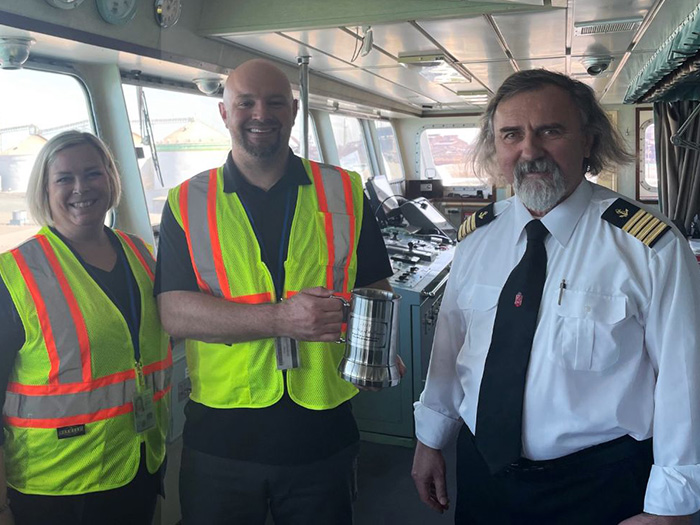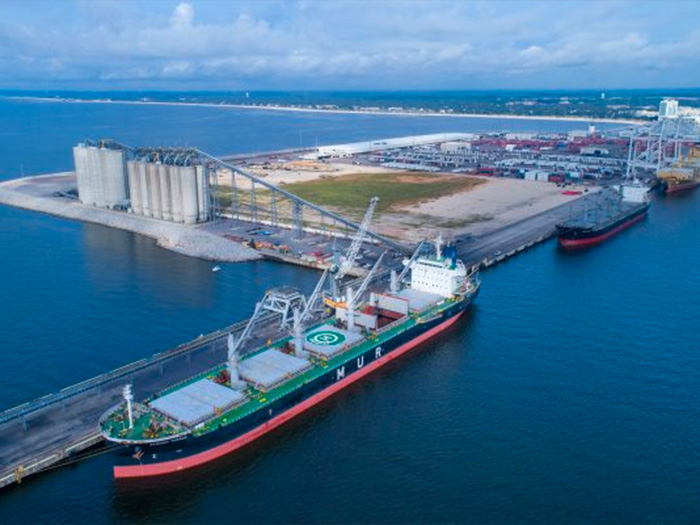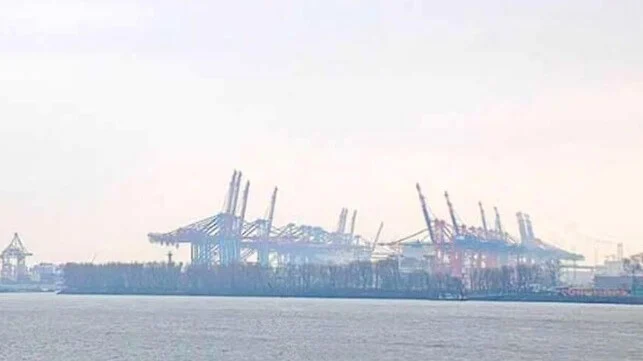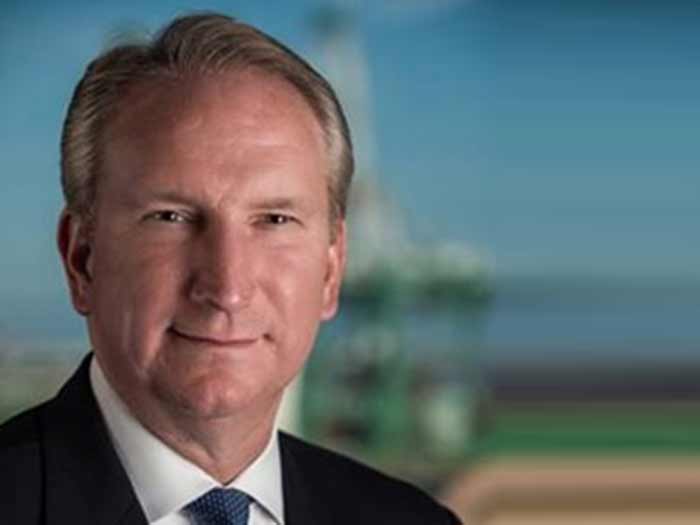The Port of Zeebrugge, already a champion of digitalisation, has joined the International Port Community Systems Association IPCSA
As a new member of IPCSA, the Belgian port is looking forward to sharing its expertise, including from its Smart Port, Green Port and Safety Port projects.
“We want to keep up to date on developments in other ports and offer the expertise of Zeebrugge to work on an international system that can benefit all port users,” said Peter Merlevede ICT manager at the Port of Zeebrugge.

eBlue_economy_Peter_Merlevede
“We believe in digitalisation and standardisation and want to be an active member of IPCSA – participating in these developments in a community that is broader than Zeebrugge port alone.
We know that exchanging ideas and discussing experiences is always valuable for all parties involved.”
Zeebrugge strongly believes that digitalisation is an important step in retaining the port’s competitiveness, said Peter Merlevede. “In anticipation of a Brexit for instance, the Port of Zeebrugge has developed RX/Seaport, a data-sharing platform which offers a digital connection between all links in the logistics chain.

eBlue_economy
The system is ready for use when Brexit occurs, but the applications of the system can be used in many other situations.”
Last year (2019), the Port of Zeebrugge invested in a private 5G network for the port area. Together with Citymesh and Nokia, it is now able to supply a working 5G network that will provide wireless connectivity to more than 100 endpoints across the entire port operations.
“Thanks to the successful deployment of this network, Port of Zeebrugge will be able to track, analyse and manage connected devices across multiple port-based applications in real time,” said Peter Merlevede. “We are specifically working on
connectivity with tugs, air pollution detectors, security cameras and quay sensors. Furthermore, the connectivity to a 5G network will be advantageous to major building projects of the port, such as the building and the maintenance of offshore wind farms.”
In general, he adds, the Port of Zeebrugge is working hard to retain its position as one of Europe’s leading roll-on/roll-off ports, a gateway to Europe for deepsea and shortsea cargo, and the world’s leading automotive hub. Overall port volumes increased by 14.2% to 45.8 million tonnes last year.
“We are also focusing on our Clean Port strategy. Zeebrugge is already an important landing point for offshore wind energy generated in the Belgian North Sea. The port has a role to play as a multifunctional energy hub.”
For example, within the green energy project Hyoffwind, partners Eoly (part of Colruyt Group), Parkwind and Fluxys are looking to build a power-to-gas installation in Zeebrugge, to convert renewable electricity into green hydrogen through electrolysis. The first production could be as early as 2023.

eBlue_economy_haven-van-zeebrugge
All maritime services in the Port of Zeebrugge are coordinated through the port authority’s ZEDIS system, with aligns with the European Maritime Single Window, as set out in the EU Reporting Formalities Directive.
The port authority is now expanding the ZEDIS platform by incorporating cargo flows from the RX/SeaPort platform developed in anticipation of Brexit.
“To meet the current and future needs of all port customers, the port authority of Zeebrugge has continuously invested and evolved in the area of digitalisation,” said Peter Merlevede.
“These efforts have brought us to the beneficial position we are in today. We are, however, ambitious to expand our knowledge and to discover future possibilities with others.”
Richard Morton, secretary general of IPCSA, said: “The International Port Community System Association has always focused on the sharing of knowledge and expertise between members, understanding that we can learn from each other and achieve so much more by working together.
The Port of Zeebrugge has a strong record and reputation for its digitalisation projects – and we look forward to sharing experiences and expertise.”

About IPCSA
IPCSA is an international association of sea and air port community operators, sea and air port authorities and single window operators that is recognised across the globe for providing advice and guidance on the electronic exchange of information across borders and throughout the whole supply chain.
Formed in 2011 as a European association, IPCSA became an international association in 2014. The association currently has 45 members from across the globe who handle the exchange of information for Business to Business, Government to Business and Government to Government processes and facilitate the smooth cross-border movement of goods. This equates to the electronic exchange of information relating to more than 500 million TEU movements and 10 billion tonnes of cargo for air, sea and land transport – estimated to be in excess of 20 million electronic messages and exchanges every day.
IPCSA focuses on supporting and facilitating systems and innovations for Port Community System members and users, and promoting the use of international data standards in sea and air ports, at border crossings and via Single Window systems around the world.
IPCSA is a recognised NGO with consultative status at UNECOSOC and IMO.
Zeebrugge, the seaport of Bruges, is a maritime crossroads shipping nearly 46 million tons of goods annually. The coastal port is one of the world’s foremost roll-on/roll-off ports and a fully equipped container port due to its infrastructure and water depth. The offering of both intra-European and intercontinental services makes Zeebrugge an important access port to the European markets. Zeebrugge also focuses on the transshipment of conventional cargo, liquefied natural gas, cruises and – not in the least – the handling of new cars and “high and heavy” loads. Handling over 2.9 million units on an annual basis, the coastal port is the leading car-handling port in the world.





